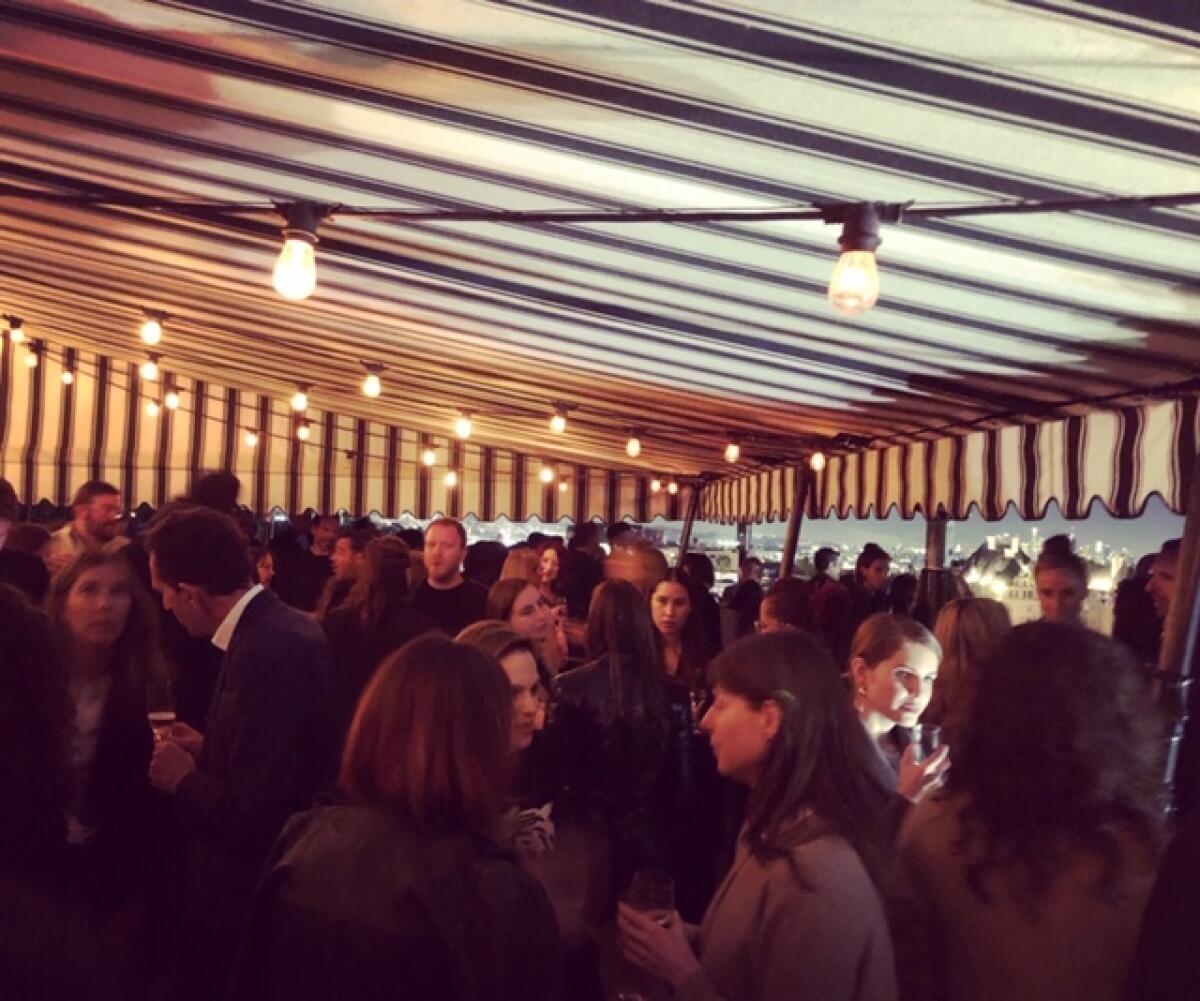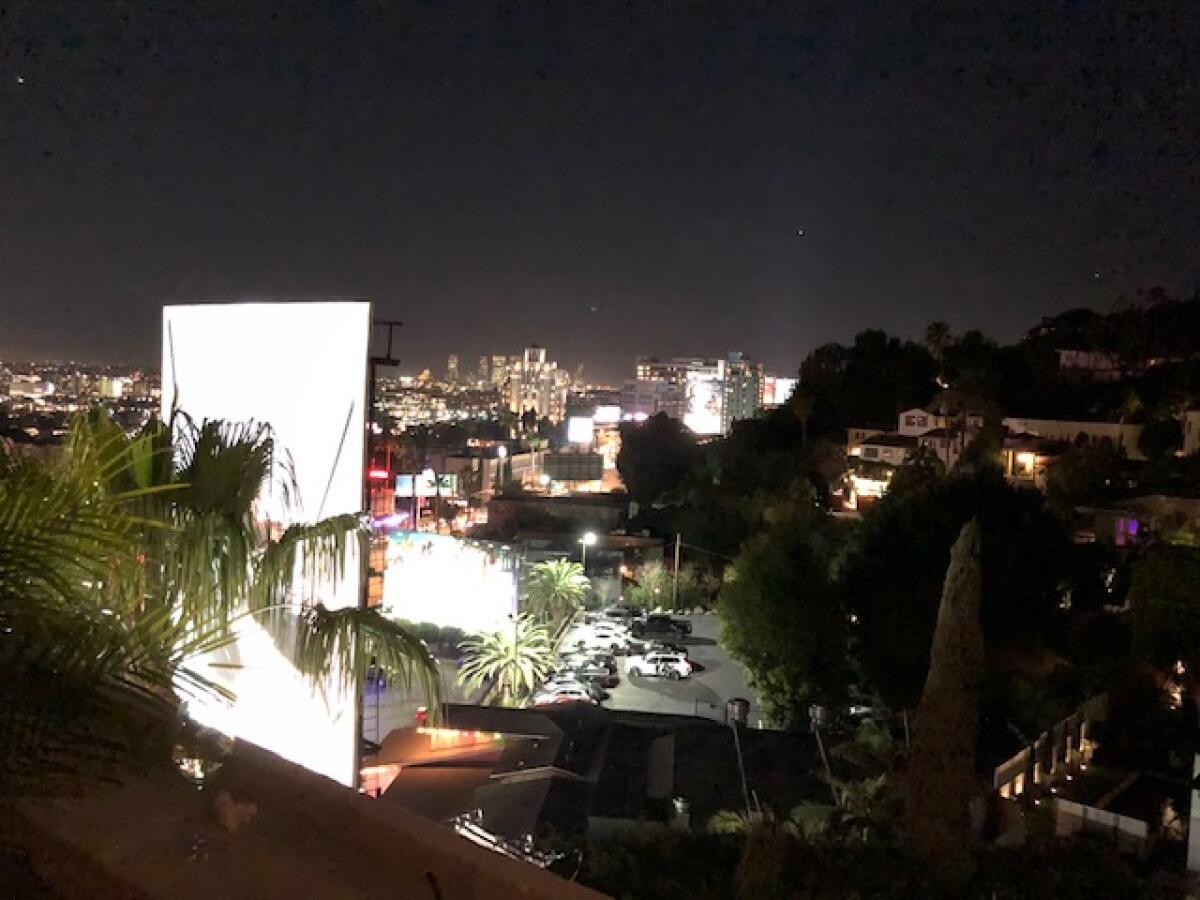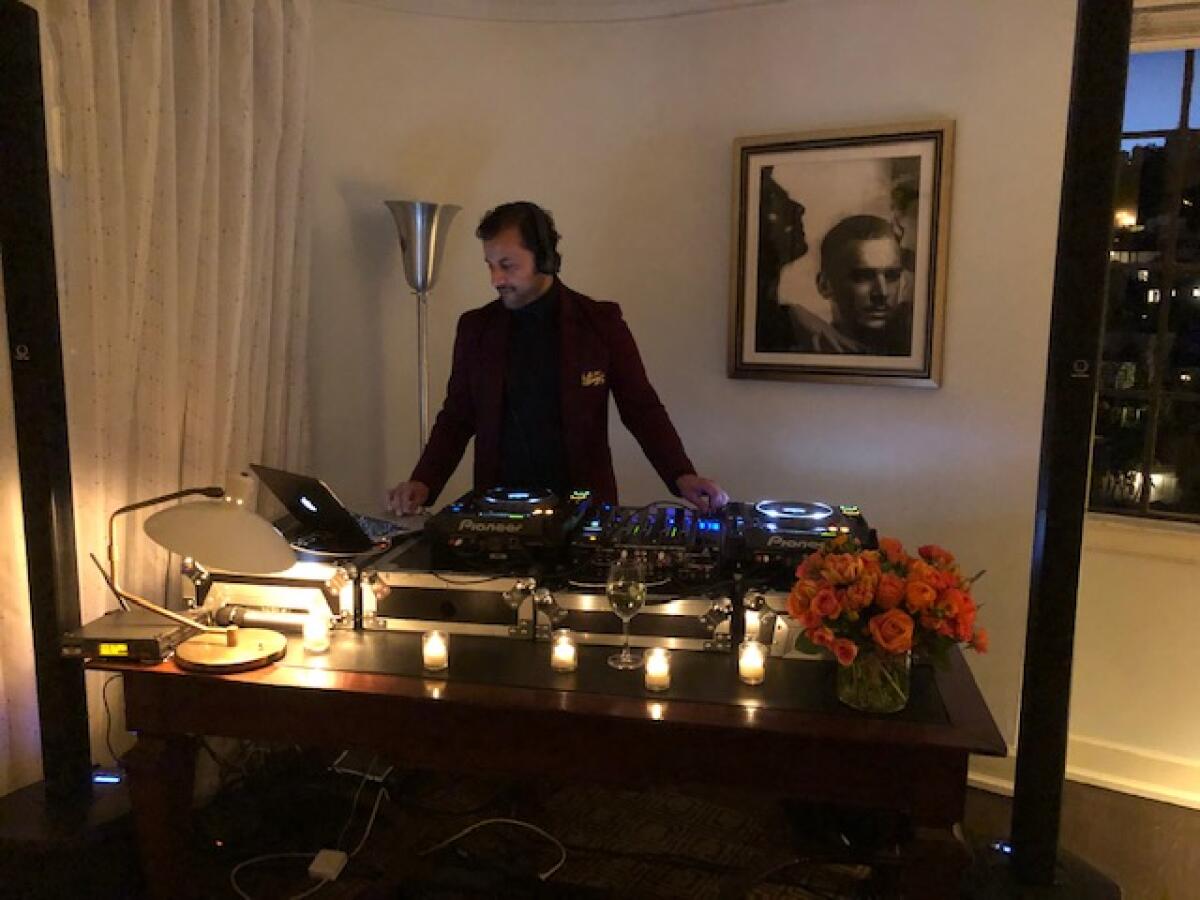How do you gear up for Frieze Los Angeles? With Prosecco at the Chateau Marmont

- Share via
Art fairs are exclusive, with their tiered ticketing and timed entries, not to mention the invite-only parties and private dinners. On Tuesday evening Frieze Los Angeles held a VIP party — a VVIP event, if you will.
The evening was a welcome for exhibitors, many of whom had just arrived from Europe, Mexico and New York for the art fair, which opens to the public Friday. As guests arrived at the penthouse suite of the Chateau Marmont, there was no shortage of swank: Servers offered trays of Prosecco and mezcal mule cocktails, tuna tartare and beef sliders (organic, grass-finished, Belcampo).
Exclusivity, as pungent as the perfume in guests’ gift bags, permeated the air.
Guests mingled on the patio under a canopy of flickering Fellini-esque lights as the sun set over Sunset Boulevard. A fire roared in the adjacent living room, where a DJ spun rhythm and blues-infused country music. Art-fair-circuit-traveler reunions rippled throughout the crowd — lots of “Oh my God, hi” rose above the din.


Here’s what some Frieze Los Angeles first-timers and returning exhibitors had to say at the start of what’s now known as Frieze Week:
Kimbery Davis, director of L.A. Louver gallery, L.A.: “Art fairs have been coming here since the ‘80s. But they didn’t attract an international audience. We stopped participating in art fairs about eight years ago. But then last year, with Frieze — finally there was an art fair organized enough to draw an international audience. I was surprised how well we did. We sold eight of the nine paintings and 12 drawings [by Gajin Fujita]. But it’s not only about sales, that wasn’t the point. It was about support. We wanted to encourage the scene. And, for, us, it was about reaching new audiences.”
Takako Yamaguchi, represented by As-is.la gallery, L.A.: “I’m an artist, I’m showing with the gallery. It’s my husband’s, it’s our first year. I’m showing small, white-on-white abstract paintings. I’m excited. But, you know, John Baldessari said — and I’m not sure this is exactly the [phrasing], but he said: ‘Artists going to art fairs is like watching your parents having sex.’ That’s creepy. So I’m cautiously hopeful — we’ll see.”
Jo Stella-Sawicka, director of Goodman Gallery, Cape Town and Johannesburg, South Africa (as well as London): “This is our first year and it was as much about Los Angeles. I was in L.A. in November for Shirin [Neshat]’s opening at the Broad and what struck me was how artists and curators here play such a role in the intersection of art and activism — that resonates with us in South Africa. So that’s a big reason we wanted to participate [in Frieze Los Angeles]. Sales are critical, you have to do business, but it’s not the only measure. We think there’s deep potential for engagement here.”
Anat Ebgi, owner and director of Anat Ebgi gallery, L.A.: “We did a group show last year — we sold all eight pieces. This year we’re doing a Greg Ito solo show, it’s about floods and fires. We love how the fair is presented, the aesthetic in the tent and on the back lot. So this year we built out a whole living room [in the booth], with burnt furniture. My goal is to present this one artist and bring recognition for the artist and the gallery.”
Nicky Verber, owner of Herald St gallery, London: “It’ll be interesting to see who comes this year, collectors. Last year it was buyers from around the world. We expect that this year too.”
Pilar Tompkins Rivas, co-curator of Frieze Projects: “The momentum is building, there’s a buzz in the air. I just hope that the context and perspective [in the Frieze Projects] regarding questions of representation and equity are understood by a broader audience.”
More to Read
The biggest entertainment stories
Get our big stories about Hollywood, film, television, music, arts, culture and more right in your inbox as soon as they publish.
You may occasionally receive promotional content from the Los Angeles Times.











